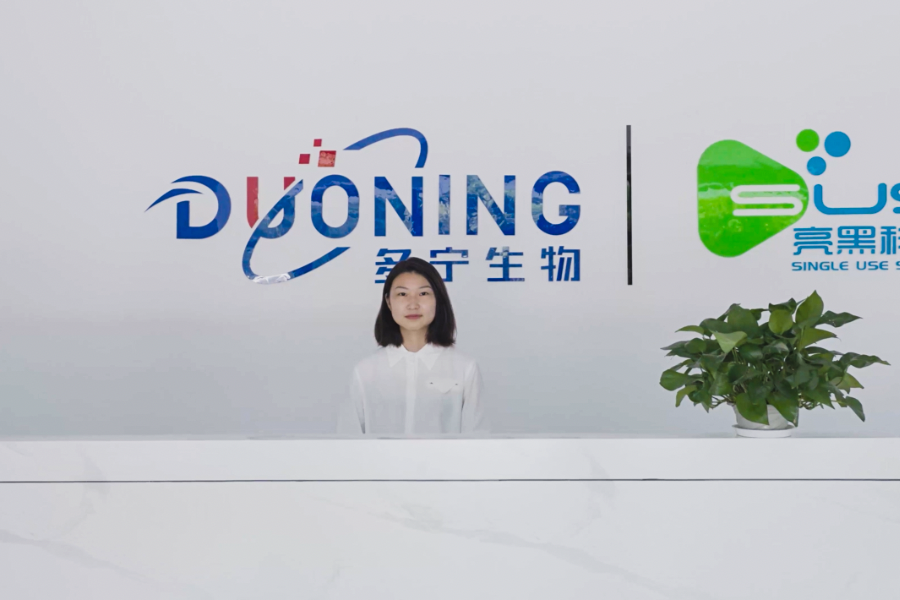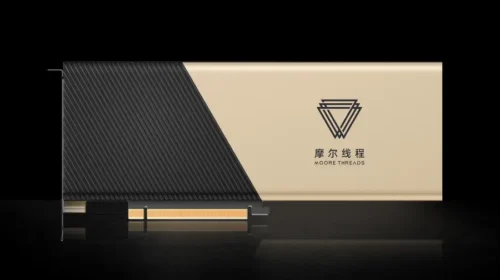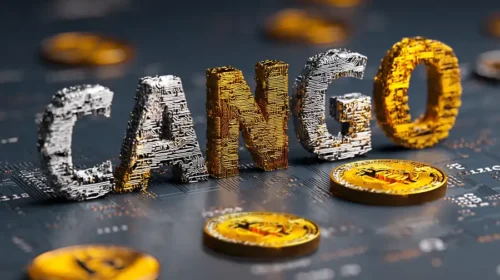Fast-growing Duoning Biotech seeks winning formula for pricey IPO

The provider of bioprocessing services for the drugs sector has been expanding rapidly via aggressive M&A, backed by big-name investors
Key Takeaways:
- WuXi Biologics is Duoning Biotechnology’s biggest client and its second-largest shareholder, with a pre-IPO stake of 17.36%
- The latest financing round left the company with a lofty valuation of 10 billion yuan ($1.46 billion) and an ultra-high price-to-earnings (P/E) ratio of 289 times
By Molly Wen
Can a company become a dominant force in China’s biologics industry by buying up supply-chain businesses and securing the backing of major investors?
Shanghai Duoning Biotechnology Co. Ltd., a supplier of bioprocessing services for drugs makers, certainly hopes so. It has taken an acquisitions route to accelerated growth and is now looking to get investors on board a bumper IPO on the Hong Kong Stock Exchange.
It has already gained prominent backing for its ambitions, with biotech powerhouse WuXi Biologics (2269.HK) and Sequoia Capital as strategic investors.
Biologic drugs depend on a much more complex research and production process than their chemical counterparts. The biologics need stable cell cultures and bioreactors to cultivate material for pharmaceutical use, as well as a host of high-quality disposable containers and other specialized equipment. These are all key parts of the bioprocessing chain in which Duoning has become one of China’s market leaders.
The preliminary prospectus filed at the end of March said Duoning was the only Chinese supplier that could cover all stages of the biological production process. The company ranked tenth among Chinese providers of bioprocessing solutions in terms of revenue in 2021, but with a market share of just 1.6%, indicating a highly splintered market.
The company mainly serves pharmaceutical manufacturers, Contract Research Organizations (CROs), Contract Development and Manufacturing Organizations (CDMOs) and research institutions. Its biggest client is WuXi Biologics, a leading Chinese provider of outsourced drug services. In the past three years WuXi Biologics contributed 53.30 million yuan, 125 million yuan and 68.70 million yuan to Duoning’s annual sales, accounting for 20% to 30% of total revenue.
The biologics industry took off in recent years, offering the potential for ground-breaking drugs to treat conditions such as cancer or arthritis. And demand for Duoning’s services across the biologics supply chain has surged. The company’s revenue jumped from 193 million yuan in 2020 to 798 million yuan last year, although net profit fell from 274 million yuan in 2020 to just 37.55 million yuan last year.
Frequent acquisitions
The company’s net profit in 2020 was higher than its revenue, with the bottom line boosted by an increase of 356 million yuan in the value of its equity holdings. Discounting items such as fair-value changes in investments, expenses on stock incentives and income tax benefits, the adjusted annual net profit figures for the past three years have been bumpy: at 22.72 million yuan, then 140 million yuan and most recently 49.16 million yuan.
Duoning started out in 2005 as a developer of cell cultures. In 2016, Wang Meng bought 60% of the company’s shares for just 180,000 yuan. As chairman and CEO, he steered the company towards becoming a one-stop provider of comprehensive bioprocessing solutions. Wang did not come from a research background but had led sales teams in biotech companies and a startup in biologic sales services.
The company first partnered with WuXi Biologics in 2017, working to localize antibody materials and equipment. A year later Duoning bought the cell culture business of Beijing Mabworks and gained the backing of Ningbo Hongjia as an institutional investor. In 2019 WuXi Biologics was secured as a strategic investor and the company expanded into designing and producing bioreactors with the purchase of Guangzhou Qizhi Bio-Engineering Equipment.
From 2020, it went on another shopping spree, picking up eight companies across biologics supply chains. Now its operations encompass bioreactors, disposable products, filter products, systems to formulate nanometer drugs, certification and testing services, and beyond.
Risks of goodwill loss
But years of rapid expansion have exposed the company to higher risks of goodwill losses. In the past three years, the goodwill book value was listed as 44.90 million yuan, 128 million yuan and 755 million yuan. The company could be in line for significant goodwill reductions if future cash flows from its purchased subsidiaries fall short of expectations.
Like many other biotechs, Douning reaped big rewards during the Covid years, as revenues rolled in. The prospectus noted that the pandemic boosted the company’s vaccine-related business in 2020 and 2021. Logjams with imports during Covid also accelerated a drive for home-produced bioprocessing services. The end of China’s “zero-Covid” policy spells lower demand for Duoning’s vaccines and drugs services..
However, the Chinese government is keen to promote the domestic bioprocessing market, with policies aimed at nurturing the industry. In 2021, domestic solutions only accounted for 26.4% of the Chinese market, leaving plenty of scope for growth.
Douning has been actively courted by capital providers since 2019. The company counts Lake Bleu Capital and Sequoia Capital China as institutional investors, while biologics companies CSPC Pharmaceutical (1093.HK), Akeso Inc. (9926.HK) and Keymed Biosciences (2162.HK) serve as strategic investors. Currently, Chairman Wang is the controlling shareholder with a 24.49% stake, followed by WuXi Biologics as the second biggest investor with 17.36% of the shares.
Douning’s valuation reached 10 billion yuan in the latest round of fundraising last March, a staggering climb in the years since Wang came on board in 2016, when the company was valued at just 300,000 yuan. But its price-to-earnings (P/E) ratio is eye-wateringly high at 289 times, compared with the more modest 23 times for Tofflon Science and Technology Group (300171.SZ), an industry peer. Even its price-to-sales (P/S) ratio of 12.5 times represents a marked premium over Tofflon’s 3.3 times.
Can the company keep up the growth pace to justify a high valuation without the engine of Covid-related demand? Investors will be keenly looking for answers to that question.
To subscribe to Bamboo Works weekly free newsletter, click here






